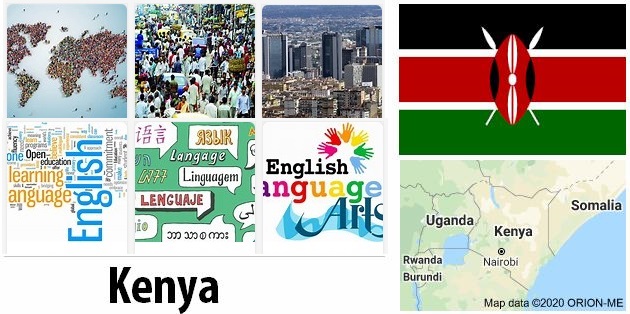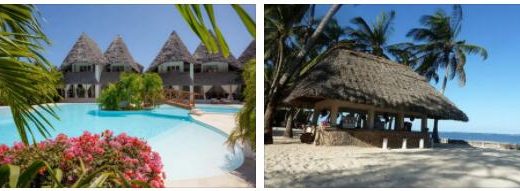Nigeria Literature
According to SHOEFRANTICS.COM, the publication of The palm-wine drinkard (1952; trad. It. The palm wine drinker, 1954) by Amos Tututola (1920-1997) conventionally marks the beginning of Anglophone Nigerian literature, destined to impose itself on the production in the three major languages of the country (ibo, Hausa and Yoruba). The mixture of indigenous material and colonial language, the latter shaped by Tutuola in a personal, storytelling and inimitable way, on the one hand thrilled the European intellectuals, thirsty for novelty, on the other it disconcerted those Nigerians, at the time in search of homologation rather than originality. Tutuola, a Yoruba from a Christian family, was not educated and always remained aloof from the contemporary generation that brought prestige to the Nigerian literature to come, including TM (Timothy Mofolorunso) Aluko (1918-2010), Cyprian Ekwensi (1921-2007), Gabriel Okara (b.1921), Onuora Nzekwu (b.1928), Chinua Achebe (v.) And then, in their wake, Flora Nwapa (1931-1993), Christopher Okigbo (1932-1967), Wole Soyinka (v.), Elechi Amadi (b.1934), JP (John Pepper) Clark-Bekederemo (b.1935). The history of modern Nigeria, which passed from the paternalistic British government (1914-60) to a long series of military dictatorships, interspersed with a civil war, coups d’état, farcical elections, censorship, corruption and violence, provided intellectuals with abundant material to be reworked. The comparison between the Western style of life and the ‘traditional’ one was at the heart of many early fiction, as demonstrated by the complex work of Achebe or, more schematically, the novel which passed from the paternalistic British government (1914-60) to a long series of military dictatorships, interspersed with a civil war, coups d’état, farcical elections, censorship, corruption and violence, provided the intellectuals with abundant material to rework. The comparison between the Western style of life and the ‘traditional’ one was at the heart of many early fiction, as demonstrated by the complex work of Achebe or, more schematically, the novel People of the city (1954) by Ekwensi. Literature again acted as a sounding board for post-independence disillusionment, as Soyinka first testified with The interpreters (1965; transl. It. The interpreters, 1995). In its wake, the criticism of rampant corruption was also modulated, including Kole Omotoso (b.1943), Ifeoma Okoye (b.1937), Festus Iyayi (1947-2013) and Ken Saro-Wiwa (1941-1995), the latter paying for his dissent with his life. But the war between Nigeria and Biafra (1967-70) is the macro-theme around which a large part of national literature gravitates, as can be seen in the novels and memoirs released close to the end of the conflict, including The man died (1972; trad. it. The man died, 1986) by Soyinka, Sunset in Biafra (1973) by Amadi, Sunset at dawn (1976) by Chukwuemka Ike (b.1931), The last duty (1976) by Isidore Okpewho (b.1941). War has remained central to the aesthetic imagination, as shown by Destination Biafra (1982) by Buchi Emecheta (v.) And Sozaboy: a novel in rottenEnglish (1985; trans. It. Sozaboy, 2005) by Saro-Wiwa and, more recently, Half of a yellow sun (2006; trad. It. Half of a yellow sun, 2008) by Chimamanda Ngozi Adichie.
In addition to the novel, the genre in which Nigeria has excelled is the theater, whose driving force was the University of Ibadan, a crossroads of different cultures and important manifestations of tolerance. From there came Soyinka, Clark, Ola Rotimi (1938-2000), Zulu Sofola (1935-1965) and, then, Femi Osofisan (b.1946), Bode Sowande (b.1948), Kole Omotoso (b.1943), Tess Onwueme (b.1955).
A vast diaspora involving Nigerian writers or writers of Nigerian origin such as Emecheta, Chris Abani (b.1966), Ben Okri (v.), Sefi Atta (b.1964) has always been emphasized, although today on the increase and in new ways., Biyi Bandele (b.1967), Helon Habila (b.1967), Chika Unigwe (b.1974), Teju Cole (b.1975), Taiye Selasi (b.1979), Adichie, Uzodinma Iweala (b.1982), Helen Oyeyemi (b.1984) and so on. Many of them, awarded prizes everywhere, write in important international newspapers, hold prestigious university professorships and outline the new type of intellectual that Selasi herself has defined as Afropolitano, that is, cosmopolitan, urbanized, culturally hybrid, polyglot, often ethnically mixed and with a global breath..
However, there is also a recent tendency to claim the choice to stay in the country, as did Lola Shoneyin (b. 1974) who, with The secret lives of Baba Segi’s wives (2009; trans. It. Prudenti like serpenti, 2012), has managed to deal tragicomically with thorny issues such as polygamy. The critical reinterpretation of the most negative stereotypes about the country is at the center of much contemporary fiction, especially of women. I did not come to you by chance (2009), which in 2010 won the Commonwealth writers’ prize for best debut novel for Africa, by Adaobi Tricia Nwaubani (b.1976), ironically winds around the well-known web scams originating in Nigeria . As regards the use of unscrupulous women body in international drug trafficking is built instead Swallow (2010) Sefi Atta (n. 1964), winner of numerous awards with his first novel Everything good will come (2006; trans. It. The best is yet to come, 2009), while the examination of the fate of prostitution of many Nigerians arriving in Europe is at the heart of Fata Morgana (2007; trans. It. From the Dutch original Le Nigeriane, 2008), by Chika Unigwe (b. 1974), who moved to Belgium for years.



